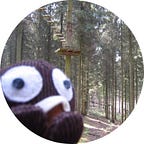Making a Change in the Primary Classroom
A change is in the air — you can see it all around. People are becoming more aware and more enlightened on the rights and wrongs in our society, many of which are hidden or seen as ‘normal’: gender equality; negative stereotypes; animal cruelty; the rise of the vegan diet; the destructive effects of pollution. We often fear change but change is not always a scary thing, because with change comes hope: a hope for a better future. It is our future but it also belongs to generations to come and they deserve a voice to speak out and have their say.
The Change It project by A Tale Unfolds encourages primary school children to find their voice. They learn about the features of a campaign through persuasive writing and then create their own campaign film on either a given topic or one of their own choosing. Change It is supported by Change.Org, a website that brings power to the people by enabling them to share online campaigns and providing them with a platform for change. Initially, the Change It project focuses on an example campaign against the selling of battery-farmed chicken eggs. This was supposed to be a brief introduction to the power of one person’s opinion, but for our Year 6 children at Tubbenden Primary School it was the beginning of something huge.
Children are infamous for asking “why?”. Their sense of wonder, and enthusiasm to explore the world, is accompanied by the compelling ability to question what is around them. In the primary classroom, this curiosity can often lead the learning into fascinating detours and tangents, allowing us to delve into subjects we never would have thought we would explore together. By introducing the topic of battery farming to our classes, along came the enquiring torrent of questions: ‘What is battery farming?’, ‘Why do they treat animals like that?’, ‘What happens to the chicks?’, ‘Are cows treated any better?’…here was the revelation, a realization, for the children of whom society wants to remain oblivious to these hidden atrocities.
The next day one girl brought in a letter of complaint that she had written and wanted to send to a fast-food chain — this one lesson had impassioned the children enough to value their voice and their opinion.
It was not long before all of our children had written letters to companies asking for a fairer treatment of animals, as well as a persuasive request for new school equipment and an impromptu campaign against ‘wet play’! Our children had found their voice: they wanted to be heard and they knew their opinion mattered.
That was only the first part of the Change It project and already the pupils were empowered. Further along, our focus was to be the wasteful volume of plastic that we use every day, a topic that we had studied in great depth before through A Tale Unfold’s Plastic Times. Before we had even begun, there had been rumblings amongst some children about the wasteful use of plastic in schools, but this noise was becoming louder. So, never ones to let a learning opportunity pass, we dived into the study of plastic waste and its impact.
In one particular lesson, we armed ourselves with notebooks, pens and critical eyes, to survey the school and identify how plastic is used around us. It is one thing to talk about how the world needs to reduce plastic use, but it is crucial to look at our own surroundings and provide a meaningful context for the children. Our Year 6 pupils now wanted to make a change for the better, they knew where to start and they wanted to be heard.
Finding your voice doesn’t just mean being heard aloud, it means having an opinion of your own; believing in what your own choice. The Change It project enabled the children to find their voice, encouraged them to share their opinions and enabled us, as teachers, to support them in doing so.
All too often young children are taught by adults what they should think — be it religion, political views, morals or even which football team to support — however it does not mean that they will share these opinions when they are older and are allowed the freedom of choice. A child’s view should be valued and we should be listening. In only a few months time, our wonderful Year 6s will be at secondary school. In only seven years time they will have the power to vote and make a difference. Let’s make our own change and empower our children to make a difference.
Find out more about the Change It project and other digital literacy projects for primary classrooms over at www.ataleunfolds.co.uk
